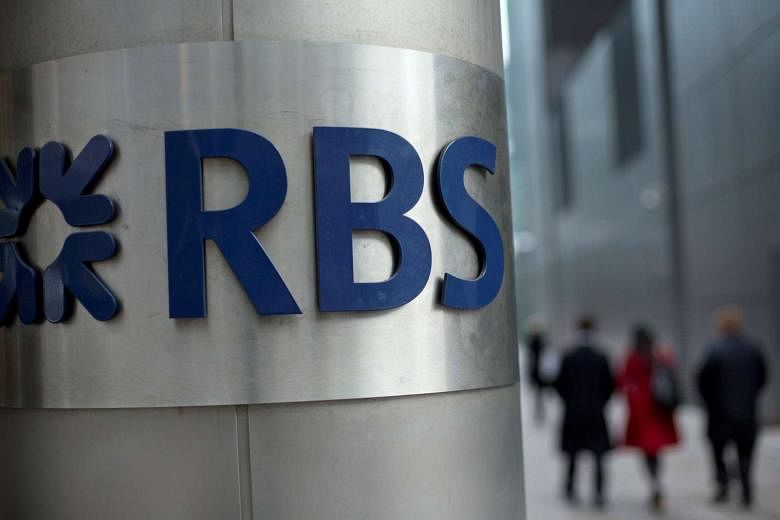LONDON (BLOOMBERG) - Royal Bank of Scotland Group chairman Howard Davies indicated the United Kingdom taxpayer-owned bank would probably pick Dublin as its European Union base following Brexit and may have to move "tens" of employees from Britain to other offices.
"In our case we don't have a problem because we do own a euro-zone bank in the form of Ulster Bank," Mr Davies said in a Bloomberg Television interview on Wednesday. "Probably we would have to move some people, but we are talking tens of people, not the numbers other banks are talking about."
Global banks have started to reveal more about their plans to shift jobs and set up offices within the EU after Prime Minister Theresa May indicated she'll pull Britain out of the single market. British banks such as Barclays Plc, which may move about 150 employees to Dublin, and Lloyds Banking Group Plc, which will shift a handful of people to Frankfurt, appear less affected than their international peers, many of which have indicated thousands of jobs may relocate.
Mr Davies said any disruption from Brexit would be minimized for RBS because Ulster Bank is already regulated by the European Central Bank, while the Edinburgh-based lender also has smaller operations in the Netherlands and Germany. The Irish unit is "quite a sizable bank so we have a euro-zone base," he added.
Irish financial services minister Eoghan Murphy said positivity toward Dublin is increasing among banks considering Brexit-related moves. The nation has received more than 100 enquiries from companies, Murphy said Wednesday in a Bloomberg Television interview.
While RBS has been shedding operations in Europe to focus about 85 per cent of its assets in the UK and Ireland, it retains a subsidiary in the Netherlands from the remnants of its acquisition of ABN Amro, a deal which precipitated the bank's 45.5 billion-pound (S$80.7 billion) bailout at the height of the financial crisis. Mr Davies said he was concerned about a "cliff edge" Brexit, whereby access to the EU is cut off after two years of negotiations. But, he said he was encouraged that Prime Minister Theresa May mentioned the importance of temporary arrangements in a speech last month.
Banks heard May emphasize "the importance of some kind of transitional arrangement, which we hadn't heard before and is particularly crucial," the chairman said. London's financial center "can cope with changes, some people will move as result, but what you can't cope with is a discontinuity in contracts and that's going to be very, very disruptive."

